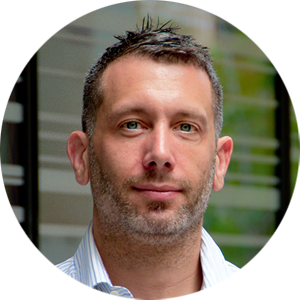
Making Quantum Error Correction Practical with Quantum Control Infrastructure Software
Michael Biercuk
Q-CTRL | CEO & Founder
University of Sydney | Professor of Quantum Physics & Quantum Technology
KEY04 — Tuesday, September 20, 2022 @ 17:30-18:45 Mountain Time (MT) — UTC-6
Biography
Dr. Michael J. Biercuk is the CEO and Founder of Q-CTRL, and a Professor of Quantum Physics and Quantum Technology at the University of Sydney. In his academic position he leads a research team as a Chief Investigator in the ARC Centre of Excellence for Engineered Quantum Systems, exploring the role of control engineering in quantum-coherent systems. Michael earned his undergraduate degree from the University of Pennsylvania, and his Masters and PhD from Harvard University. He held a research fellowship in the Ion Storage Group at NIST Boulder, and has served as a full-time technical consultant to DARPA, helping to steer government investments in quantum information and advanced computer architectures. Michael is a SXSW and TEDx speaking alumnus and a multi-time Australian Museum Eureka Prize nominee and winner.
Abstract
Noise and error are the Achilles Heel of quantum computing and limit our ability to deliver practical quantum advantage. Quantum error correction delivers the mathematical foundation for optimism that errors can be overcome and large-scale quantum computing realized. Nonetheless, a substantial gap lies between the mathematical promise of quantum error correction and the practical matter of delivering quantum computers with improved performance. In this talk we address this challenge holistically, focusing on the various ways that quantum control infrastructure software can make error-robust quantum computing a practical reality by deterministically suppressing hardware errors.
We frame our discussion around experimental demonstrations on commercial IBM quantum computers that achieve up to 9000X enhancements in QED-C algorithmic benchmarks and quantum volume measurements with no changes to the underlying hardware. These results are achieved via execution of a single autonomous workflow with no manual intervention, built on quantum control techniques. Our presentation then unpacks the building blocks of these achievements, highlighting deterministic error suppression techniques including: AI-designed quantum logic gates and context-aware circuit-level crosstalk and error cancellation. We conclude by demonstrating how combining these techniques with QEC encoding enhances the efficacy of syndrome measurements in a quantum error correction cycle. Overall these experiments reveal how software can help unlock error-robust performance in quantum computer hardware.
